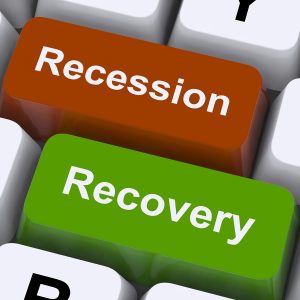Mortgage Rates Waiver As Recession Fears Grow
:
Filed under: Economy
 In the last few weeks there has growing concern over the state of the economy and future of the financial impact to citizens. As inflation began to rise earlier this year, economists have been predicting the potential for financial control techniques to curb the rising costs of goods and services. One of these methods involves raising the federal interest rate.
In the last few weeks there has growing concern over the state of the economy and future of the financial impact to citizens. As inflation began to rise earlier this year, economists have been predicting the potential for financial control techniques to curb the rising costs of goods and services. One of these methods involves raising the federal interest rate.
Why Rates Rise?
The Federal Reserve Board (the “fed”) considers a variety of factors when setting the federal funds rate. Some of these factors may include inflation, employment levels, and economic growth. In general, the fed may raise rates to cool off an economy that is growing too rapidly and inflationary pressures are rising. By increasing rates, this makes borrowing more expensive and can help to slow the economy and keep inflation in check.
Why Rates Are Currently Not Rising As Expected?
The federal interest rate is only part of the story. First, the mortgage rates themselves are not set by The Federal Reserve Board. Rather, mortgage rates are based on the prime rate set by The Federal Reserve Board. The prime rate can have immediate implications in mortgage rate values, but are not directly tied to the short term interest rate that the Fed controls. Rather, they are relative to long-term interest rates.
As concerns over raising rates to combat inflation grew into a stronger prediction of an impending recession, the mortgage rates are maintaining lower values or dropping somewhat compared to the recent increase seen last month. What happens next is up to the rate of inflation. If inflation slows, mortgage rates will remain steady where they are. If inflation continues to grow as it has all year, mortgage rates are likely to continue their climb.







